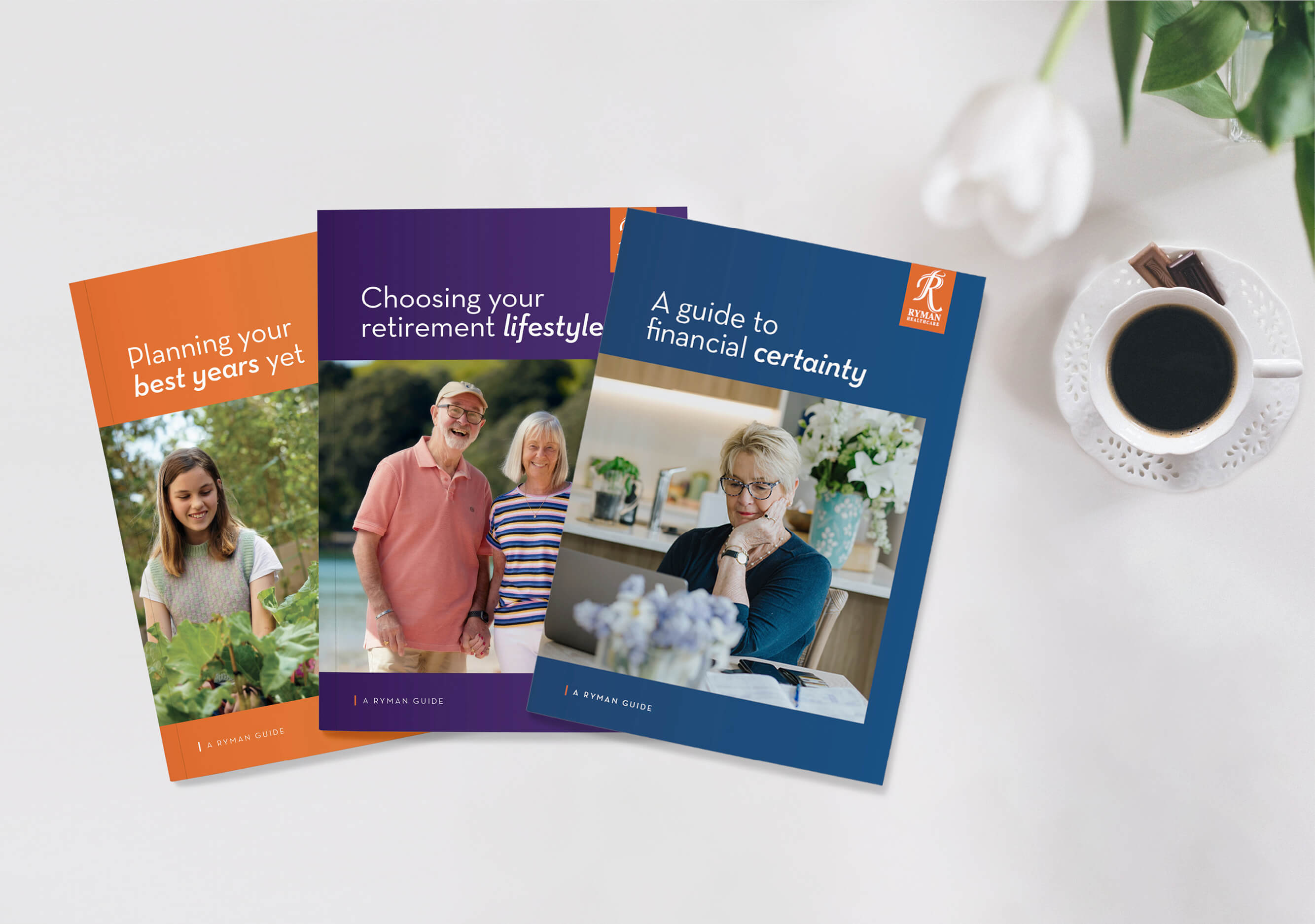At Ryman, we believe a full life is one that gets richer with age. It’s rediscovering lost passions and plunging headfirst into new ones. It’s embracing new experiences right there on your doorstep. That’s why we’re creating communities that challenge the expectations of ageing, while bringing joy and meaning to every moment.

Our villages offer you the freedom to choose your ideal retirement lifestyle. This is your time, and we’re here to help you enjoy it. Explore Ryman's lifestyle and financial guides designed to help you retire with confidence.
GET YOUR GUIDESRetirement is a chapter in life filled with possibilities. At Ryman villages, we aim to help you make that chapter the best it can be. That’s why our villages offer living options to suit everyone, so you can choose the lifestyle that suits you best.
Taking the first steps in finding your retirement lifestyle is an exciting time, we’re eager to tell you more.
Contact usOur business model centres around care, enabling us to make profound improvements to the quality of life of older people.
Investor centreAt Ryman, the measure of a full life is one that gets richer with age. This sentiment is shared by everyone who works here.
Ryman careersPhone: 0800 588 222
Christchurch office: 03 366 4069
PO Box 771, Christchurch 8140
New Zealand